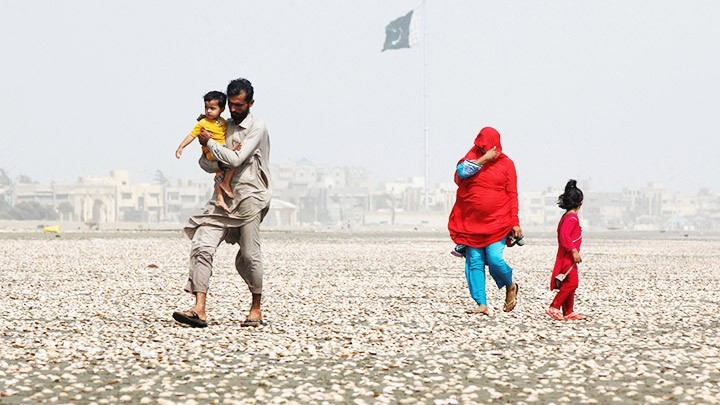People in Bangladesh are suffering from the sweltering heat, as temperatures rose to the highest level in nearly 60 years. According to Bangladesh government data, the average temperature in a week as of April 19 reached 41.6 degrees Celsius in Dhaka, 4.3% higher than the previous week and 12.5% higher than the same period last year, being the highest level recorded since the 1960s.
Particularly on April 19, the highest temperature reached was 42.8 degrees Celsius in western Bangladesh. Hundreds of people gathered in Dhaka to pray for rain in the hope of helping to relieve the unbearable heat. Meanwhile, in India, at least 13 people died from heatstroke at an outdoor event in the western part of the country, on April 16.
Extreme heat waves are increasing the burden on India’s agricultural, economic and public health sectors, while climate change undermines the South Asian nation’s long-term efforts in reducing poverty, inequality and diseases.
In a new study published on April 19, a team of experts from the University of Cambridge (UK) said that since 1992, hot weather has claimed the lives of more than 24,000 people, increasing air pollution and accelerating the rate of ice melting in the northern region of India.
The study also notes that India is facing a range of climate hazards, with extreme weather occurring almost every day between January and October 2022.
Ramit Debnath, in charge of the study group, warned that up to 90% of the total area of India is currently in the extremely high-temperature zone, while the South Asian country is not fully prepared to cope with the risks and consequences of extreme weather events.
This expert said that India has implemented several measures to deal with heat waves, but the country still needs to speed up the implementation of these plans. Adaptation measures are considered to be quite strong, but only in documents and have not been put into operation.
The heat waves are undermining India’s efforts to achieve the United Nations Sustainable Development Goals, researchers warn. Specifically, extreme heat could reduce farmers’ outdoor productivity by 15%, reduce the quality of life of 480 million people, and cause a loss of 2.8% of India’s GDP by 2050.
According to the Climate Transparency Report 2022, the declining productivity due to the impact of higher temperatures could cause India to suffer losses equivalent to 5.4% of GDP.
Thailand is also experiencing an unusual heat wave when the annual rainy season has not yet begun. According to meteorological experts, Thai people have recently welcomed the Songkran traditional water festival, with the highest temperature in many years. On April 20, the Thai Meteorological Department said the temperature rose to a record high of more than 50 degrees Celsius, in Bangkok and 44.6 degrees Celsius in the western province of Tak and warned of severe weather in the coming days.
Normally, Thailand records its peak heat wave in May before entering the rainy season. However, this year, the heat came earlier and stronger. According to a report by the United Nations Intergovernmental Panel on Climate Change (IPCC), global warming is exacerbating adverse weather events.
Scientist Fahad Saeed from Pakistan-based Climate Analytics said, that this year’s record heat in Thailand, China and South Asian countries, is a climate trend and will create public health challenges in many years to come.
According to Fahad Saeed, rising temperatures are a consequence of climate change and the impact of this situation on vulnerable populations will be severe. Extreme heat conditions affect the poor most severely, and can even threaten the lives of those without access to cooling systems or appropriate shelter.
















